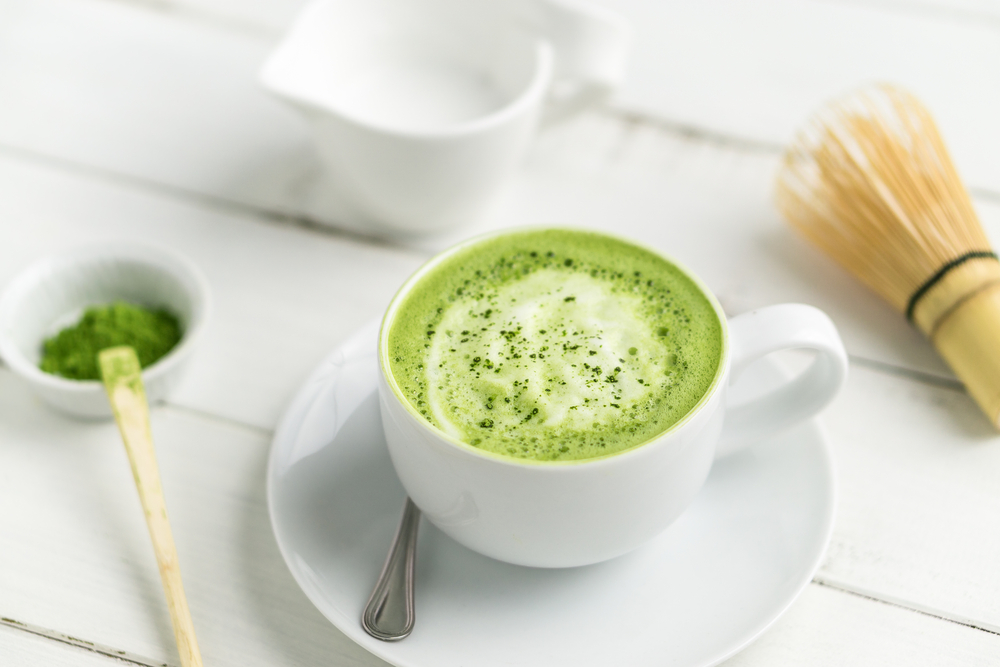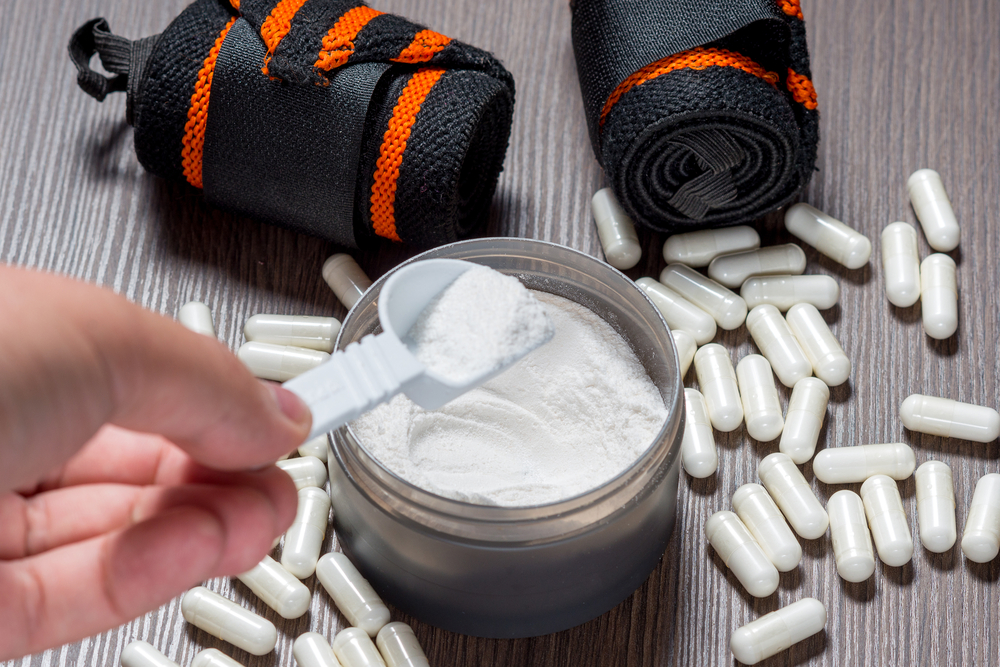Glutamine is one of the most important dietary supplements used by athletes. Although it is not recognised as an essential amino acid, there are many reasons why it is important to supplement. Essential for recovery from intense training, glutamine has also been shown to have beneficial effects against gut permeability problems. Here are 6 points to better understand the role of glutamine in the body.
What is glutamine?
Glutamine is a non-essential amino acid, which means that the body is able to produce it itself and that it is not necessary to take it from the diet. However, an exogenous intake (via the diet) can be beneficial under certain conditions.
Almost all protein sources (fish, meat, legumes) contain significant amounts of glutamine. It is therefore estimated that the average consumption of glutamine from food is in the order of 5 to 10g per day.
But this is relatively little when you consider the benefits that this amino acid can bring to muscle recovery, the digestive system and the immune system.
Muscle growth
This is an amino acid that is often proposed in muscle mass gain packs. Why is this? For the simple reason that muscles are made up of proteins, and that 50 to 60% of the amino acids that make up a muscle are glutamine 1. As a result, glutamine is the most synthesised amino acid in the muscles of the human body.
And when muscles are subjected to intense stress or exercise, the muscle fibres are damaged and must be replenished. In this case, glutamine supplementation supports the body in its healing process and thus in muscle recovery.
In addition, intense exercise tends to cause a drop in glutamine levels in the body as it is used to rebuild damaged muscle fibres. And a drop in glutamine levels can cause a decrease in the effectiveness of the immune system, which is also involved in the recovery process.
Glutamine is essential for the synthesis of a large number of immune cells. It is therefore important to consume enough glutamine to be able to train properly.
Studies to date have not shown any real anabolic effects of this amino acid, but it does help to limit muscle wasting, known as catabolism. It has been shown that glutamine supplementation helps to maintain muscle mass during a short period of weight loss 3.
Acid-base balance and detoxification
When the acid-base balance is normal, the small intestine and the liver are the main sites of glutamine utilisation. The hepatocytes (liver cells) catabolise glutamine and convert ammonium ions (acids) into urea, which can be excreted in the urine and thus rid the body of this metabolic waste product.
Ammonium is a compound that can become toxic to the body if it accumulates and thus limit the processes of muscle growth and recovery 4.
During metabolic acidosis, the kidney becomes the main site of glutamine utilisation. Therefore, glutamine is no longer available in the small intestine and liver to recycle ammonium into urea. This waste product will therefore accumulate in the body, thus increasing metabolic acidosis, which can be responsible for muscle wasting 4.
Glutamine intake therefore helps to maintain the acid-base balance, which is essential for the proper functioning of the body.
Immune system
The expression of numerous genes involved in the synthesis and management of immune components is conditioned by the presence of glutamine.
Glutamine is the energy substrate used by white blood cells. It stimulates the process of tissue repair and healing and controls the proliferation of immune cells.
During a period when the body is affected by an infection or an acceleration of catabolism (degradation of muscle proteins), glutamine requirements are increased to ensure the proper functioning of immunity.
Glutamine levels in the body therefore become insufficient to meet the needs of the muscles, organs and immune system.
Protection of the intestinal wall
One of the main functions of glutamine is to intervene in the energy metabolism of intestinal cells. In fact, once in the intestinal cells called enterocytes, glutamine is metabolised into alpha-ketoglutarate, which is an essential component for energy production. Indeed, this molecule is a component of the Krebs cycle which allows the production of cellular energy.
Glutamine has also been shown to have beneficial effects against certain complications of the digestive tract, particularly in people suffering from irritable bowel syndrome (motor disorders, abdominal pain, bloating) or chronic inflammatory bowel disease (also called IBD).
These disorders are often the result of intestinal hyperpermeability. Glutamine is the amino acid capable of regulating the expression of tight junction proteins that allow the membrane impermeability of intestinal cells 6.
In addition, by modulating the secretion of inflammatory factors this amino acid has the ability to protect the intestinal wall and reduce the symptoms of irritable bowel syndrome 7.
Finally, by maintaining a healthy intestinal wall and mucosa, the intestinal flora can develop and ensure the proper functioning of the digestive system.
Doses and side effects
Glutamine supplements are frequently used by athletes to recover from intense training or exercise.
But what is the effective dose? The recommended dose for optimal recovery is 0. 1g of glutamine per kilo of body weight per day. This translates into an intake of 7g, preferably after training, for a 70kg person.
This amino acid is currently known to be safe and without side effects. Studies have shown that taking 45g per day for 6 weeks does not cause any adverse effects. 8 However, it is recommended that you consult your health care professional if you wish to exceed the recommended dosage.
Bibliographie
1. Audrey Yule Coqueiro. Glutamine as an Anti-Fatigue Amino Acid in Sports Nutrition. Nutrients. 2019
2. Chang WK, Yang KD, Shaio MF. Lymphocyte proliferation modulated by glutamine: involved in the endogenous redox reaction. Clin Exp Immunol. 1999;
Kevin, J. Finn. Glutamine Supplementation did not Benefit Athletes During Short-Term Weight Reduction. J Sports Sci Med. 2003 Dec
4. Lynn Taylor. Glutamine metabolism - Role in acid-base balance. Biochemistry and Molecular Biology Education 32(5):291-304 - September 2004
5. Cruzat V, Macedo Rogero M, Noel Keane K, Curi R, Newsholme P. Glutamine: Metabolism and Immune Function, Supplementation and Clinical Translation. Nutrients. 2018;
6. I. Ghouzali, & al. Glutamine supplementation limits intestinal hyperpermeability in two mouse models mimicking symptoms of irritable bowel syndrome, Clinical Nutrition and Metabolism, Volume 31, Issue 1, 2017.
7. Kim MH, Kim H. The Roles of Glutamine in the Intestine and Its Implication in Intestinal Diseases. Int J Mol Sci. 2017;18(5):1051. Published 2017 May 12. doi:10. 3390/ijms18051051
8. Candow DG, Chilibeck PD, Burke DG, Davison KS, Smith-Palmer T. Effect of glutamine supplementation combined with resistance training in young adults. Eur J Appl Physiol. 2001







